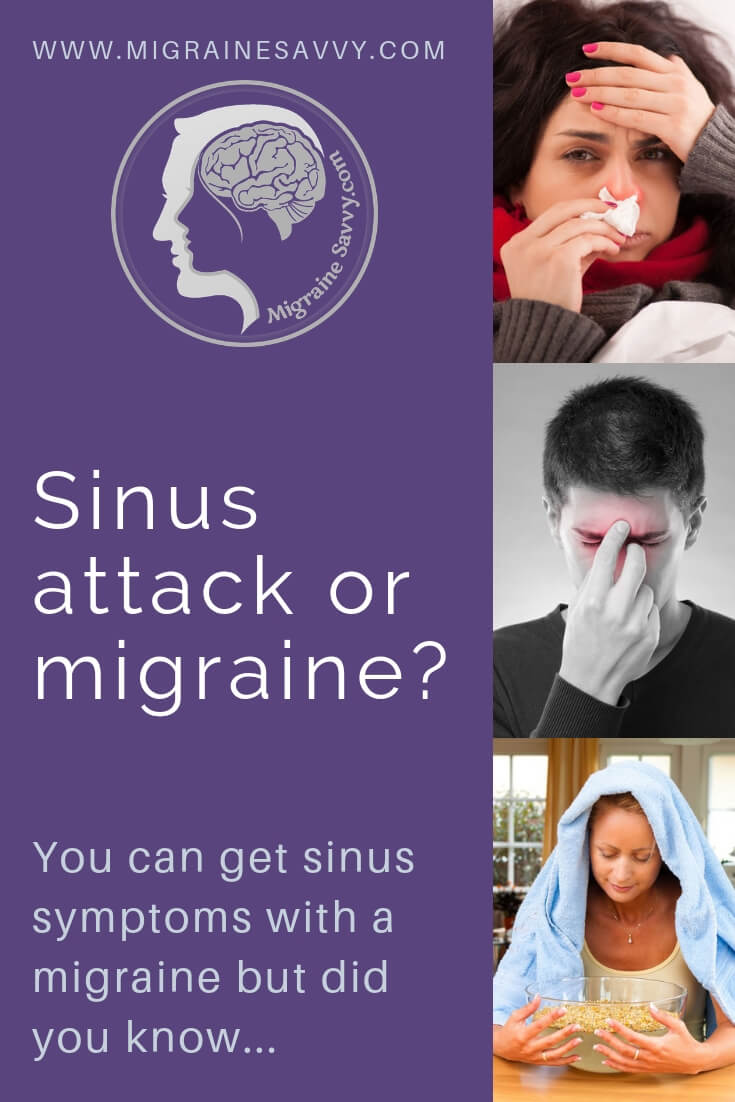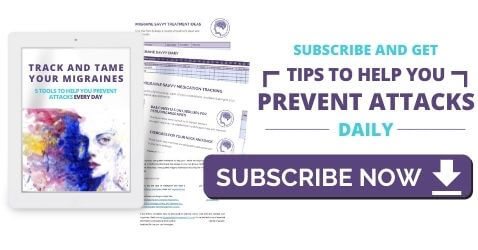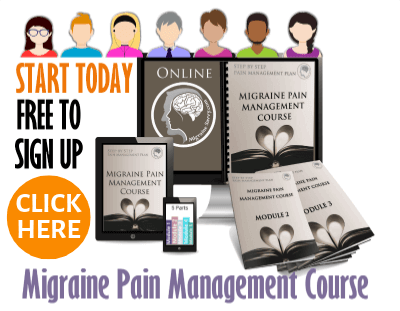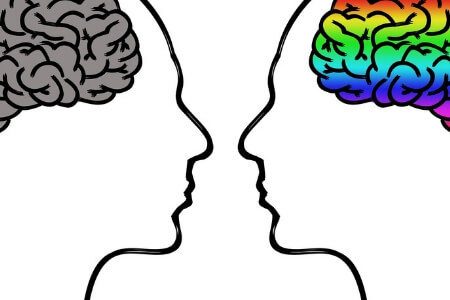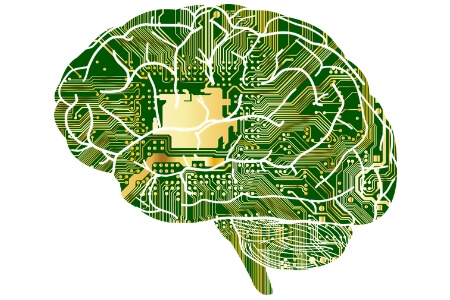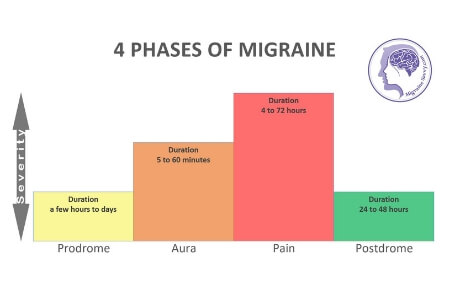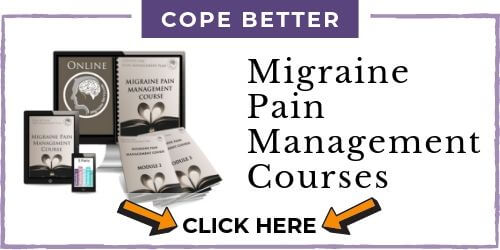- Home
- Migraine Types
- Sinus Migraines
GET THE BEST MAGNESIUM
My #1 Choice - Magnesium Breakthrough - combines 7 types of magnesium in a humic/fulvic monoatomic blend to optimize absorption. I personally use it to combat attacks – nothing else compares.
How To Treat Sinus Migraines Effectively
There's no official classification called sinus migraines... but there's often a lot of confusion between sinus headaches and migraines because they share a lot of the same symptoms.
The International Headache Society doesn't classify sinus headaches. They state that most people actually suffer from a migraine without an aura, accompanied by sinus symptoms.
 Do you get sinus migraines? Here's how to treat them @migrainesavvy
Do you get sinus migraines? Here's how to treat them @migrainesavvy
A runny nose and or watery eyes (sometimes just on one side) can often accompany a migraine attack. Nasal symptoms are a typical migraine symptom. They can occur with every attack or just with some.
A sinus headache is not an official diagnosis, but it's a term that physicians often use to describe the symptoms.
Many of us who have sinus like migraines never even seek medical attention for diagnosis... we just write it off to being a sinus headache, when it's actually a migraine. Especially if your physician mistakes a migraine symptom for a sinus headache and gives you the wrong diagnosis.
So, getting the correct diagnosis here is very important and can help prevent you from taking headache medications for continuous sinus problems, which will be ineffective and provide little to no relief.
Over the counter headache tablets don't work for moderate to severe migraines, nor do sinus medications. They might make your migraines worse, leaving room for overdose which nobody wants. So, getting the appropriate treatment for either a migraine or a sinus attack, is crucial.
Let's cover a few more details so you know how to treat which ever one you have.
Know what you have so you can treat it properly.

What Nasty Symptoms You Should Watch For
Research shows that approximately forty-two percent of the patients that have migraines are incorrectly diagnosed by some physicians as having sinus headaches.
42%! That's almost half.
In most situations, having a sinus infection is what causes the pain.
Sinusitis is swelling, or an inflammation, of the tissues that line the sinuses. Your sinuses are usually filled with air. But when they become congested and filled with fluid, germs (like bacteria, viruses, and fungi) grow and can cause an infection.
The symptoms that you might experience when having a sinus attack are:
- Sinus pressure
- Facial pain
- Runny nose
- Teary eyes
- Nasal congestion
- Pulsating pain
- Puffy eyelids
- Headache and localized pain
Sinus headaches do not cause nausea or vomiting, sensitivity to light or photo-phobia. Some doctors say that migraines do not commonly have a nasal discharge, fever, post-nasal drip, or a sore throat.
With every attack my right eye swells up and the sinus drips. My husband often says "are you getting a cold?"
Sinus attacks from allergies, like migraines, usually reoccur repeatedly and can impact daily functioning significantly. And having an infection would increase the pain associated with a sinus attack.
So, you can see how easy they can be confused, but just remember the sensory sensitivities, nausea and vomiting as a telltale sign of migraine.
Telltale signs of a migraine are: sensory sensitives (light, sound, smell), nausea and vomiting. You will not get these with a sinus headache.
Here's How To Treat Each One... More Effectively
There are numerous medications for migraine treatment. Generally, the most recent effective migraine abortive medication on the market is the family of triptans. These 3 articles have all the details:
If you take this at first sign of an attack, you can successfully abort a migraine. If you can’t take one of the triptan family, I highly recommend going through the other medications, one by one, with your physician until you find something that works.
They are strong medications and need to be prescribed by your doctor. You will need pain relief, even if you don’t want to take it all the time. It is good to have it on hand should you need it for a really bad episode.
A sinus headache, on the other hand, would lead to the prescribing of medications such as allergy antihistamines, antibiotics, and sinus medications.
Keeping a journal of your symptoms and triggers can help with the diagnosis.
You need to know if it's a sinus migraine to treat it effectively.
According to the University of Maryland Medical Center the best treatment approach for sinus headaches is to treat the underlying inflammation. Antibiotics or corticosteroids may be the best way to go. They also suggest these lifestyle changes, and you know I love healthy lifestyle choices:
 Use Steam To Relieve Sinus Migraines
Use Steam To Relieve Sinus Migraines• Use a humidifier;
• Use a saline nasal spray or try irrigating your nasal passages with salt water;
• Breathe in steam two to four times per day;
• Be proactive with supplements and herbs that will help to prevent colds and flu or at least shorten their duration.
I like using Olive Leaf for infections.
As I always say make sure you talk with your doctor and/or naturopath to find the rights ones to work together with the antibiotics, if you are on them, so they do not interfere. You want to treat your infection and support your immune system.
You can also do relaxation techniques and head and neck stretches. Try these super easy headache migraine neck pain stretches for instant relief at home.
Many of us, who believe our migraines are sinus headaches, may get little relief from over the counter medications. And vice versa! Over the counter headache tablets don’t work for migraines either. It's so important to get the right diagnosis, so you can treat yourself correctly.
The right treatment = less symptoms + less suffering!
A migraine needs abortive medications (in most cases); a sinus attack needs antihistamines, and if infected - antibiotics.
What You Can Do Now To Help Relieve Sinus Migraines
Migraines are more common than most people realize they are. They are known to affect approximately 18% of women and approximately 6% of the men in the United States.
These percentages are normally applied to all the other cultures. This adds up to millions of us worldwide. And although this is a relatively high percentage, remember that about half of the migraine headaches, never get diagnosed. I assume these are the very mild ones.
There are 29.6 million chronic sinusitis sufferers in the US alone. Allergies are increasing everyday. I wonder how many of these are misdiagnosed migraines?
When going to your physician, be sure to keep a log, or some notes in a special migraine journal, to help him/her rule out underlying health issues. Many people simply tell their physician that they have been having sinus problems. Because of patient load, the physician may focus on sinus issues and misdiagnose the migraine.
Sinus migraines confuse us all! For some extra help with sinus migraines, you can download the migraine diary and 5 things you can use every day by joining the mailing list.
BE INFORMED. STAY INFORMED. JOIN THE MAILING LIST.
WANT MORE TIPS? Subscribe to my newsletter and follow along on Facebook and Pinterest for all of the latest updates.
MIGRAINE TYPES Related Articles
How to be more migraine savvy right now...
Sinus Migraines References:
1. University of Maryland Medical Center (2016) Sinus Headache. Available [online] at: https://www.umms.org/ummc/health/medical/altmed/condition/sinus-headache
2. Centers for Disease Control and Prevention (2017) Chronic Sinusitis Statistics. Available [online] at: https://www.cdc.gov/nchs/fastats/sinuses.htm
Sinus Migraines Image credits: ginasanders 123RF Stock Photo; lightwise 123RF Stock Photo
